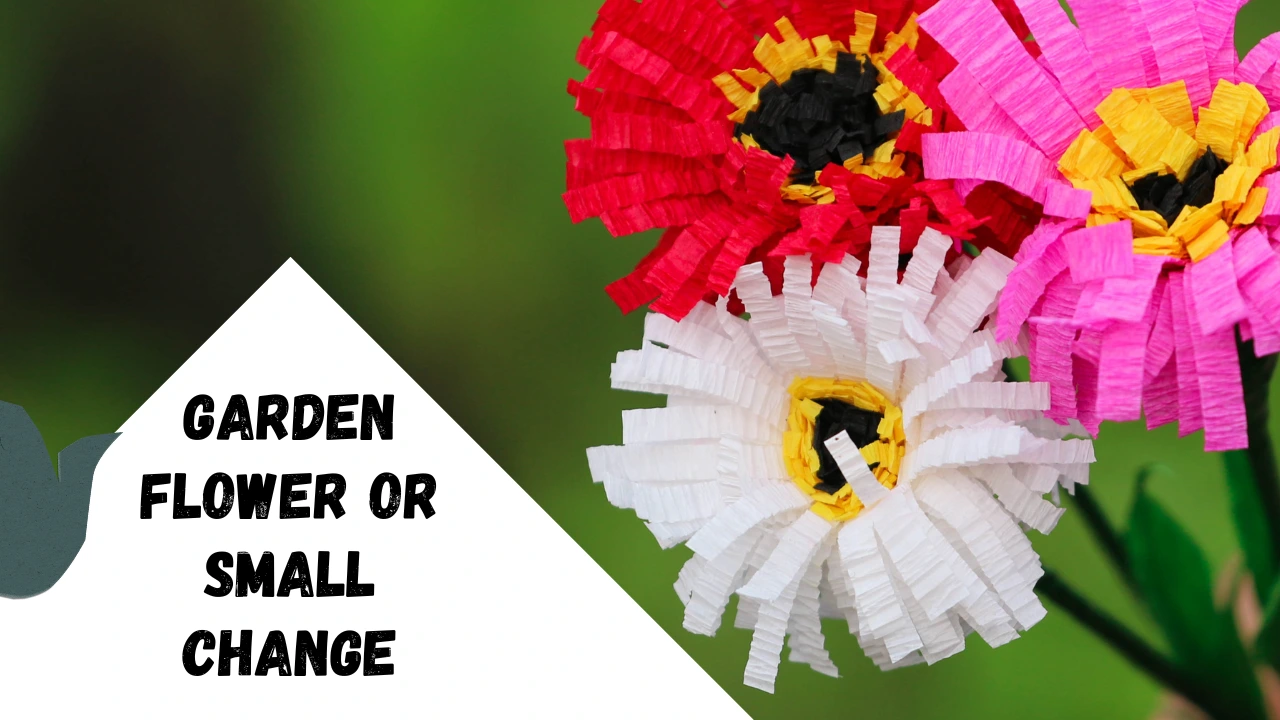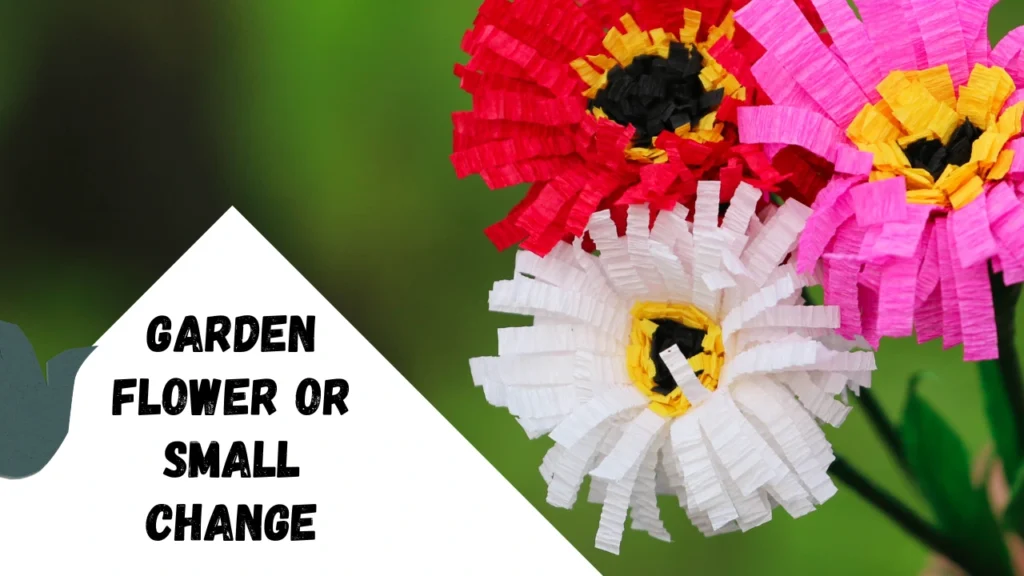Physical Address
304 North Cardinal St.
Dorchester Center, MA 02124
Physical Address
304 North Cardinal St.
Dorchester Center, MA 02124



There is an element of magic when a garden bursts into bloom. The riot of color, the soothing greenery, and even the hum of bees denote a haven where nature has the final say.
Beyond the riot of color and tempting scents, there lurks, however, a deeper metaphor-a latent linkage between the growth of a garden flower and that of the small change in life.
The piece will tell us not only about the beauty of growing a flower garden but also about embracing small changes that carry immense power of transformation.
From learning minute details of the role of each plant to relishing the small changes in our life, this narrative stitches together nature’s lessons and life’s wisdom in an easy-to-understand creative manner.
Flowers in a garden seem to be just for display at first sight. But they are signs of growth, hope, and resilience. Think about how from one small seed, no bigger than a grain of sand, there emerges this bloom so remarkable. Pretty cool, huh? Something that small creates something that beautiful.
Similarly, life’s journey of modifications is brought about by small changes. It could be a change in attitude, a different way of looking at life, or the instillation of a healthy habit-no matter how small that step might be, it leads to metamorphosis. This growth through small changes can be represented by the metaphor of a garden flower.
The flower gardens bring together a number of blossoms, each adding its uniqueness to the ecosystem. Just like every flower in the garden has its purpose, so do small changes in our life.
1. Roses: These are the archetypes of grace and, hence, have been considered to be the queen of flowers in gardens. Available in many beautiful colors, roses have meanings unto themselves:
they express love and admiration. But growing a rose is not without challenges. They require pruning, care, and patience-pretty much like those little changes in life. It takes time, sometimes things just do not work out as planned, but well, it is always worth the result.
2. Sunflowers: the tall and proud flowers that assure much positivity and energy. Sunflowers always face the sun and show us the message of being optimistic. A slight change in outlook might give a turn to our day and help us stand tall, just as the sunflower does, with a reassurance of bravery against all odds.
3. Daisies: symbolize innocence and purity since their meek, white petals face up toward the sun. The understated beauty here reminds one that not all changes have to be great or big. Sometimes, the most trivial and softest change may bring the biggest difference in results.
4. Tulips: Carrying the flag for the heralding of spring, the vivacity of colors, and the capacity to bloom well at the beginning of the season; they present a view worth beholding.
Tulips remind us of the power of reformation, rejuvenation, and a fresh start. Just like planting tulip bulbs in autumn requires time for them to grow and bloom, small changes change the look of your garden after their respective time with beauty.
While flowers in a garden enthrall us with their beauty, it is a series of little, usually imperceptible changes that make them exist. The role of a gardener involves planting the flowers, pruning them when necessary, and watering them regularly. Similarly, small, positive changes have to be included in our lives as we go about them if we want to see growth and transformation in them.
The Ripple Effect of Small Changes
A slight earth movement, a drop or two of water, or more sun may be all it takes sometimes to change the way a flower blooms. The little changes start an avalanche that builds up to mass color explosions.
And it is exactly here where, in life, the ripple effect occurs. Think of just the simple fact of getting up 10 minutes earlier, and how that will start to make or break the productiveness of a day, or even removing those sugary snacks for healthier ones to create wellbeing.
Such small changes create large transformations-something not too unlike the way a gardener tends his or her plants.
1. Routine Adjustments: Much as a florist would attend to flowers on a routine basis, adjustments in the routine of life-even by a small margin-create the difference. Meditation for five minutes every day, walking during lunch hours, or whatever-it contributes to healthier and happy living.
2. Nurturing Relationships: Flowers are never grown in a no-man’s land; they grow and bloom under the right conditions. Similarly, our personal relationships require care. A gentle message, time spent with loved ones, or a helping hand-small acts build bonds and create harmonies.
3. Mindset Shift: Sunflowers naturally face the sun; similarly, a minor mindset shift would reap profound results. Shifting to a state of gratitude, embracing positivity, or perhaps letting go of part of the preoccupation with the past changes everything over time as it blooms into peace and happiness.
Patience is needed in the garden, as it is with life’s little changes. The florist will never expect things to change overnight since he knows flowers bloom in due time. Patience isn’t about waiting but allowing a process.
At times in life, we get bugged by the delay in change. But just like a garden, which takes time to grow, personal transformations do too, for which one needs to be quite patient. It is essential to point out that the small steps taken today will ensure growth, though not yet currently perceived.
Seasons of Change: A Garden’s Natural Cycle
Just as seasons come and go, so too do our lives. There’s growth, resting time, and renewal. It is a natural trend the garden would show us that there is something to be learned in change.
Spring: The Season of New Beginnings
Spring to a garden means renewal. It is the time when flowers bloom, trees regain their leaves, and the world seems new again. Spring is symbolic of those moments in our lives when we embark on new journeys or embrace fresh ideas. It is the best time when some small variations could be brought into the daily lives of a person, something like trying a new hobby, skill, or living a healthier life. Just as planting seeds in springtime, these minor changes provide a foundation for development.
Summer: Nurturing Growth
During summer, a garden is in bloom. All flowers are at their best, and the garden is thriving. This phase of growth relates to times in our lives when things are going well both on the personal and professional fronts. Just as the garden requires watering and weeding, our growth requires nurturing, tending to the small changes we have made, so that they continue to thrive.
Autumn: A Period of Reflection
The garden gets painted with vibrant colors of fall, and with this, it becomes a time of reflecting. Autumn in life is the time of quiet contemplation when one reflects upon the journey traveled so far and sees changes and growth in our lives. We perceive the trees shedding off leaves, realizing that sometimes in our lives we are going to have to give up an old habit, a relationship, or mindset that no longer serves us. This is a small but essential change for the new growth.
Winter: Rest and Renewal
That is the season when, superficially, it looks as though nothing was happening in the garden, while deep in its core, the garden rests and recouples energy for the next growth cycle. And this, too, happens in our lives when rest and quiet are inevitable. What winter reminds us is that even in apparent stagnation, little changes are happening. It is in rest that we recharge and prepare ourselves for renewal to come thereafter.
One of the most important things that one learns as a gardener is the need for consistency. Flowers have to be taken care of regularly: water, sunshine, pruning. Consistency is what a garden needs to flourish.
1. Commit to Small Changes: It is not about making small changes once or twice. Just like the gardener who waters the plants every time, so too we must be committed to the small changes we make in our lives. Be it doing mindfulness, regular exercise, or spending time on personal growth, consistency will turn these small changes into long-lasting habits.
2. Perseverance Amidst Difficulties: Tending to the garden will face difficulties. Sometimes, there can be pests or a sudden turn in weather conditions that may be against the health of your plants. But for a true gardener, they would still persist in finding ways of protecting their garden. In our lives, we face hindrances. The small changes we commit to may encounter resistance or setbacks, but persistence ensures we overcome them.
A garden flower is a powerful metaphor in relation to small change regarding personal growth. In the same way a garden grows and flourishes with the right amount of care and attention, so can our lives burst into flower with small changes. Each bloom plays a vital part in something beautiful yet delicate and thriving in a garden.
And so, the next time you find yourself in a garden, just stop and reflect upon the lesson it imparts. Take in the beauty of the flowers, but also remember the small changes that helped them bloom.
Often in life, it’s not the big moves-the great leaps-that are needed for transformation but the small adjustments, the tiny steps forward, that make all the difference. A garden of possibilities has very judicious cultivation, with patience, persistence, and care-one small change at a time.